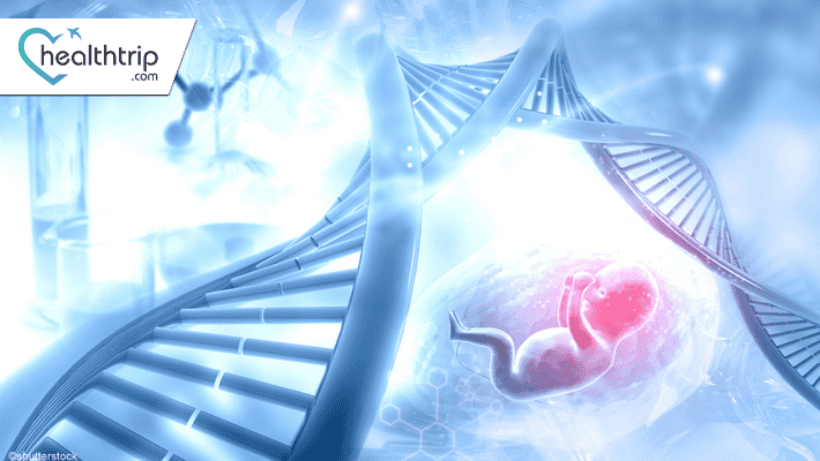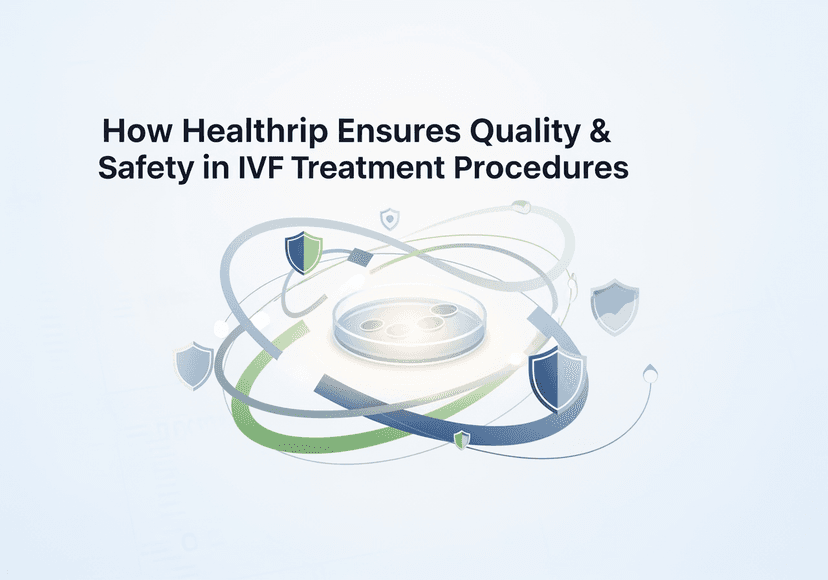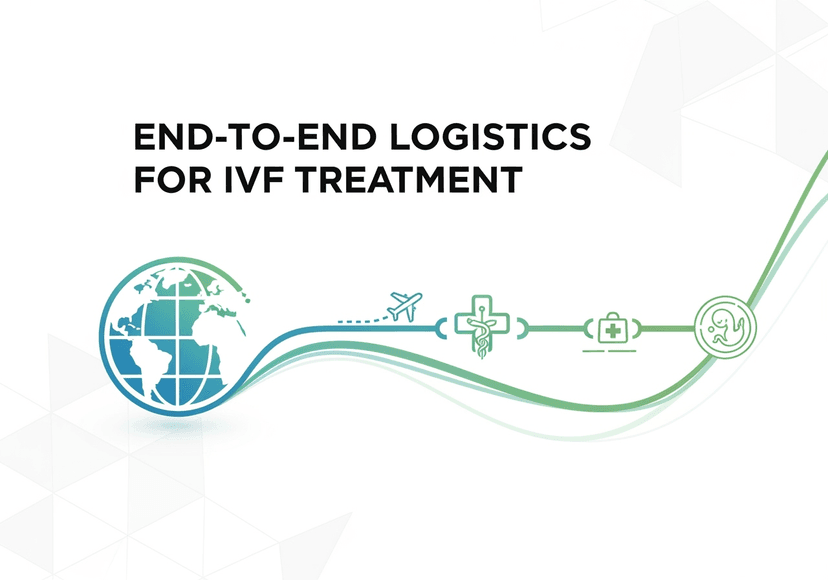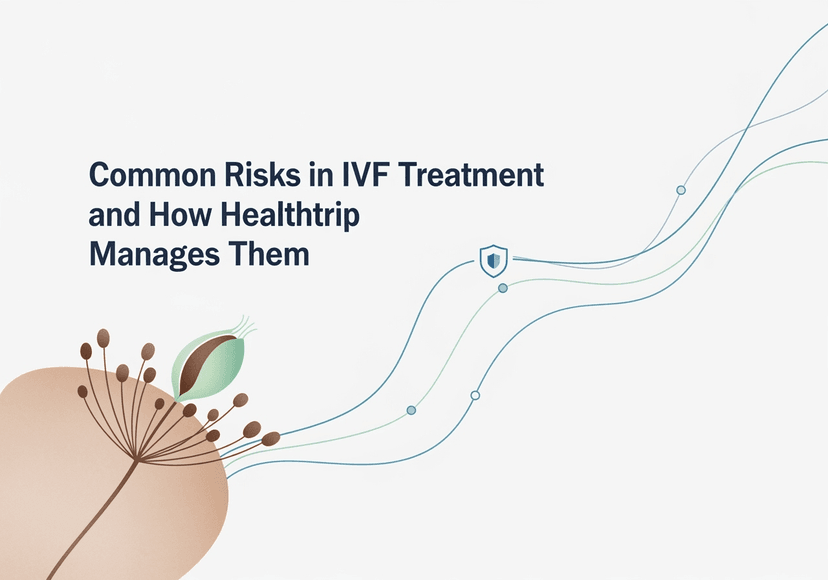
IVF Treatment and Genetic Testing
11 May, 2023
In vitro preparation (IVF) is a fruitful treatment choice that has assisted many couples all over the planet with considering a youngster. The cycle includes recovering eggs from a lady's ovaries, treating them with sperm in a lab dish, and afterward moving the subsequent undeveloped organisms back into the lady's uterus. IVF has been utilized effectively for north of forty years, however ongoing advances in hereditary testing have made the cycle much more successful.
Genetic testing is the process of analyzing an individual's DNA to determine if they have a genetic condition or are carriers of a genetic condition that could be passed on to their children. This is especially important for couples who are using IVF to conceive, as it allows them to identify embryos that are free of genetic disorders and increase the chances of a successful pregnancy.
Most popular procedures in India
In this article, we will explore the different types of genetic testing available for couples undergoing IVF treatment, the benefits of genetic testing, and the ethical considerations surrounding this technology.
What is genetic testing in IVF?
Wellness Treatments
Give yourself the time to relax
Lowest Prices Guaranteed!

Lowest Prices Guaranteed!
Genetic testing is a process of analyzing a person's DNA to determine if they carry any genetic mutations or abnormalities that could be passed on to their children. In IVF, genetic testing is typically done on embryos before they are transferred into the woman's uterus. This is known as preimplantation genetic testing (PGT).
PGT involves removing one or more cells from an embryo and analyzing their DNA. There are several types of PGT, including:
- Preimplantation genetic diagnosis (PGD): This type of testing is used to detect specific genetic mutations or disorders that are known to run in a family. PGD can be used to identify embryos that are affected by a particular condition and only transfer unaffected embryos.
- Preimplantation genetic screening (PGS): PGS is used to screen embryos for chromosomal abnormalities, such as extra or missing chromosomes. This can help identify embryos that are more likely to result in a successful pregnancy and reduce the risk of miscarriage.
- Preimplantation genetic testing for aneuploidy (PGT-A): PGT-A is a newer form of PGS that uses advanced genetic testing techniques to detect a wider range of chromosomal abnormalities.
Why is genetic testing important in IVF?
Genetic testing can provide several benefits for couples undergoing IVF:
- Reduced risk of passing on genetic disorders: If one or both parents carry a genetic mutation or disorder, genetic testing can help identify embryos that are not affected. This can reduce the risk of passing on the disorder to their children.
- Increased chances of success: PGT can help identify embryos that are more likely to result in a successful pregnancy. This can increase the chances of a successful IVF cycle and reduce the risk of miscarriage.
- Reduced risk of multiple pregnancies: IVF is associated with a higher risk of multiple pregnancies, which can increase the risk of complications for both the mother and the babies. PGT can help identify the healthiest embryos, which can reduce the need for transferring multiple embryos.
- Reduced risk of miscarriage: PGT can help identify embryos that are more likely to result in a successful pregnancy and reduce the risk of miscarriage.
- Reduced emotional and financial burden: IVF can be emotionally and financially stressful for couples. PGT can help identify the healthiest embryos, which can reduce the need for multiple IVF cycles and reduce the emotional and financial burden on the couple.
What are the risks of genetic testing in IVF?
Like any medical procedure, genetic testing in IVF is associated with certain risks and complications. These include:
- False positives or false negatives: Genetic testing is not 100% accurate, and there is a risk of false positives or false negatives. This means that an embryo may be incorrectly identified as affected or unaffected by a particular condition.
- Embryo damage: The process of removing cells from an embryo can potentially damage the embryo and reduce its chances of successful implantation.
- Limited information: Genetic testing can only provide information on the specific conditions or abnormalities that are being tested for. It cannot provide information on other potential health issues or genetic mutations.
- Cost: Genetic testing can be expensive and may not be covered by insurance.
- Ethical and social issues: There are also ethical and social issues associated with genetic testing in IVF. For example, there may be concerns about the potential for creating "designer babies" or the stigma associated with certain genetic conditions.
It is important for couples to weigh the potential benefits and risks of genetic testing in IVF and discuss their options with their healthcare provider.
What is the process of genetic testing in IVF?
The process of genetic testing in IVF typically involves the following steps:
- Stimulation of the ovaries: The woman will undergo a cycle of hormone therapy to stimulate her ovaries to produce multiple eggs.
- Egg retrieval: The eggs are retrieved from the woman's ovaries using a needle under ultrasound guidance.
- Preparation: The eggs are treated with sperm in a lab to make undeveloped organisms.
- Incipient organism biopsy: at least one cell is taken out from every incipient organism for hereditary testing.
- Hereditary testing: The cells are broken down for hereditary transformations or irregularities utilizing various methods, including polymerase chain response (PCR) and fluorescence in situ hybridization (FISH).
- Incipient organism determination: In light of the aftereffects of the hereditary testing, the best incipient organisms are chosen to move into the lady's uterus.
- Incipient organism move: The choice incipient organisms are moved into the lady's uterus utilizing a catheter.
- Pregnancy test: The lady will go through a pregnancy test roughly fourteen days after the incipient organism moves to decide whether the IVF cycle was fruitful.
Conclusion
IVF treatment and genetic testing have revolutionised the field of reproductive medicine, providing hope for couples who are struggling to conceive. Genetic testing allows couples to identify embryos that are free of genetic disorders and increase the chances of a successful pregnancy. While genetic testing offers many benefits, it also raises ethical considerations that must be carefully considered. As technology continues to advance, it is important that we continue to have open and honest discussions about the ethical implications of genetic testing. By working together to create regulations that protect the rights and privacy of individuals with genetic disorders, we can ensure that genetic testing is used for medical purposes only and that it continues to provide hope for couples who are struggling to conceive.
Related Blogs

How Healthtrip Ensures Quality & Safety in IVF Treatment Procedures
Detailed guide on ivf treatment, featuring doctors, hospitals, risks, recovery,

End-to-End Logistics for IVF Treatment with Healthtrip's Support
Detailed guide on ivf treatment, featuring doctors, hospitals, risks, recovery,

Healthtrip's Care Coordinators: Your Support During IVF Treatment
Detailed guide on ivf treatment, featuring doctors, hospitals, risks, recovery,

Top 5 Indian Hospitals for IVF Treatment
Detailed guide on ivf treatment, featuring doctors, hospitals, risks, recovery,

Post-IVF Treatment Diet and Lifestyle Tips
Detailed guide on ivf treatment, featuring doctors, hospitals, risks, recovery,

Common Risks in IVF Treatment and How Healthtrip Manages Them
Detailed guide on ivf treatment, featuring doctors, hospitals, risks, recovery,










